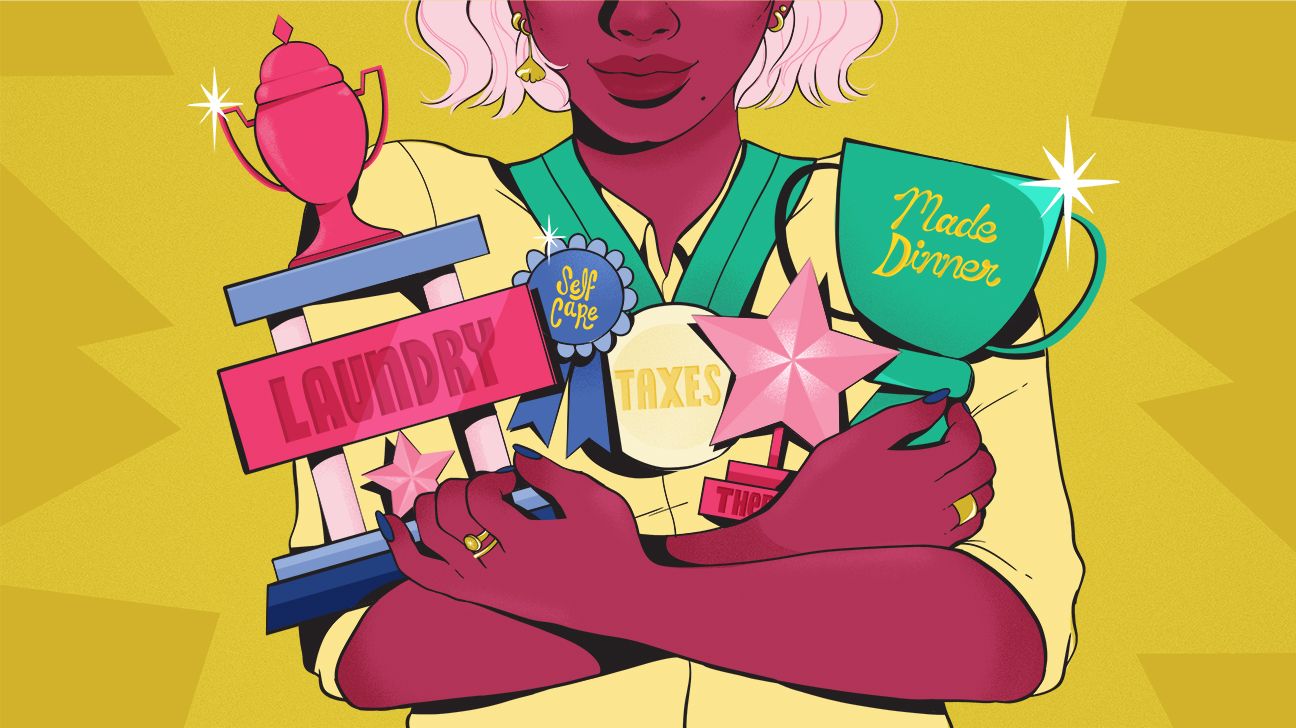
The other day I took a bite out of a pain au chocolat and cried. Not because it tasted amazing but because I’d finally interpreted one of my hunger cues correctly. Apparently you can get all the angry parts of hangry without any of the stomach rumbling — who knew?
Having a realization like this, though, makes me wonder if I’ll ever be equipped for adulting, as defined by its many internet iterations. Budgeting? Annual doctor visits? Folding my clothes? Dinner parties? My god. I’ve just shared a story about learning, at 29 years old, when my body wants me to eat! I’m not equipped for #adulting.
Really. I was never prepared.
Adulting, defined
Part of the mainstream lexicon since 2016, “adulting” refers to doing the mundane but necessary tasks (bills, laundry, chores, etc.) of being a “responsible” adult.
But if you’ve grown up without model behavior for the kind of adult you want to be, adulting takes on a very different definition.
I grew up privileged in Hong Kong, upper-middle class, complete with a live-in helper who cleaned and cooked for my family. Before I went to college, my mom taught me one basic skill, laundry, but once I was out of the house, I was a free bird.
And I ate like one too. It got so bad my friends had a not-so-secret rotating schedule to make sure I had at least one meal a day. To me, food was only taking time away from activities worthy of accolades: writing and late night video editing.
While I did eventually, with the help of the internet, learn how to perform regular adult tasks, I’d already lost the opportunity to witness how much “mundane” tasks make up a normal adult life. The answer, it turns out if you don’t care too much about being rich, is: a lot. (Tip: Don’t wait until the weekend to run errands or you’ll feel like you’re adulting forever.)
Two weeks ago, my therapist asked me to recall when I last felt proud of myself. I couldn’t remember. So she asked me how I felt when someone validated me, and I said, “Nothing,” because as a child I was expected to perfect everything, including practice. I was shown how to do things once and criticized the entire way through. Living became stuff I was “supposed to do.”
It felt silly, I told her, to need validation when I’ve gone so long and been successful without it.
That’s when she said, “As a child, validation — and affirmation — is how your parents teach you what’s an appropriate response and what isn’t.”
Validation is more than a basic human need. It’s a fluid metric to feel confident in ourselves. It changes based on experience and familiarity.
Sure, some say wanting “an award for fulfilling your basic responsibilities” may be childish. And they’re right.
Have you ever had a kid shove a drawing, or a weird rice ball they made with their sticky hands, in your face? When the kid says “Look!”, you know it’s their limited way of asking for validation while acknowledging you are someone they trust or admire. And when I think about the many of us who grew up without model behavior, it makes sense to be seeking validation for so-called basic adulting!
We’re just out here at ground zero, trying to feel confident about the path we’ve chosen. It just so happens that it’s not our parents’ affirmation we need anymore. Instead, our friends, co-workers, managers, and even strangers on social media are the adults we admire now.
Validation from them tells us we’re on the right track. It gives us the motivation to complete a task with less dread. It alleviates anxiety. It builds support so that eventually, we mindlessly, quickly (and sometimes perfectly) do what we need to do, so we can spend our energy elsewhere, either learning more adulting things or doing fun grown-up things.
Adulting doesn’t deserve the flak it’s gotten since becoming mainstream. Nobody — culturally, environmentally, or mentally — matures the same way. We all start from different points of privilege, access, and support that determine how we grow. And it’s pretty obvious, when looking at the adulting classes some universities now offer, that adulting has taken on a bigger definition than completing tasks, doing taxes, or having babies.
Laundry, for example, didn’t make the cut at a UC Berkeley adulting class. But fitness and nutrition did. UNC’s adulting classes focus on “literacy” to help people feel more confident in their political and health research. Even recent memes read like a never-ending version of Sunday Scaries… with an undertone of wanting to escape this exhaustion.
Which brings me to this: Adulting is taking care of your inner child. It’s about what you do, and the discovery of what you need to do, to be your most confident self.
Focus on all the ways you can expand your idea of adulting and the times we can support each other, like when your co-workers show up at work as their most authentic selves or when your friends set boundaries. The next time you witness adulting in action, don’t hesitate to validate it — or yourself, like I did by crying over a pain au chocolat.
We’re constantly learning, no matter our age, and so we deserve to feel pride for supporting ourselves, especially if we’re trying for the first time.
Christal Yuen is a senior editor at Greatist, covering all things beauty and wellness. Find her musing about therapy on Twitter.
